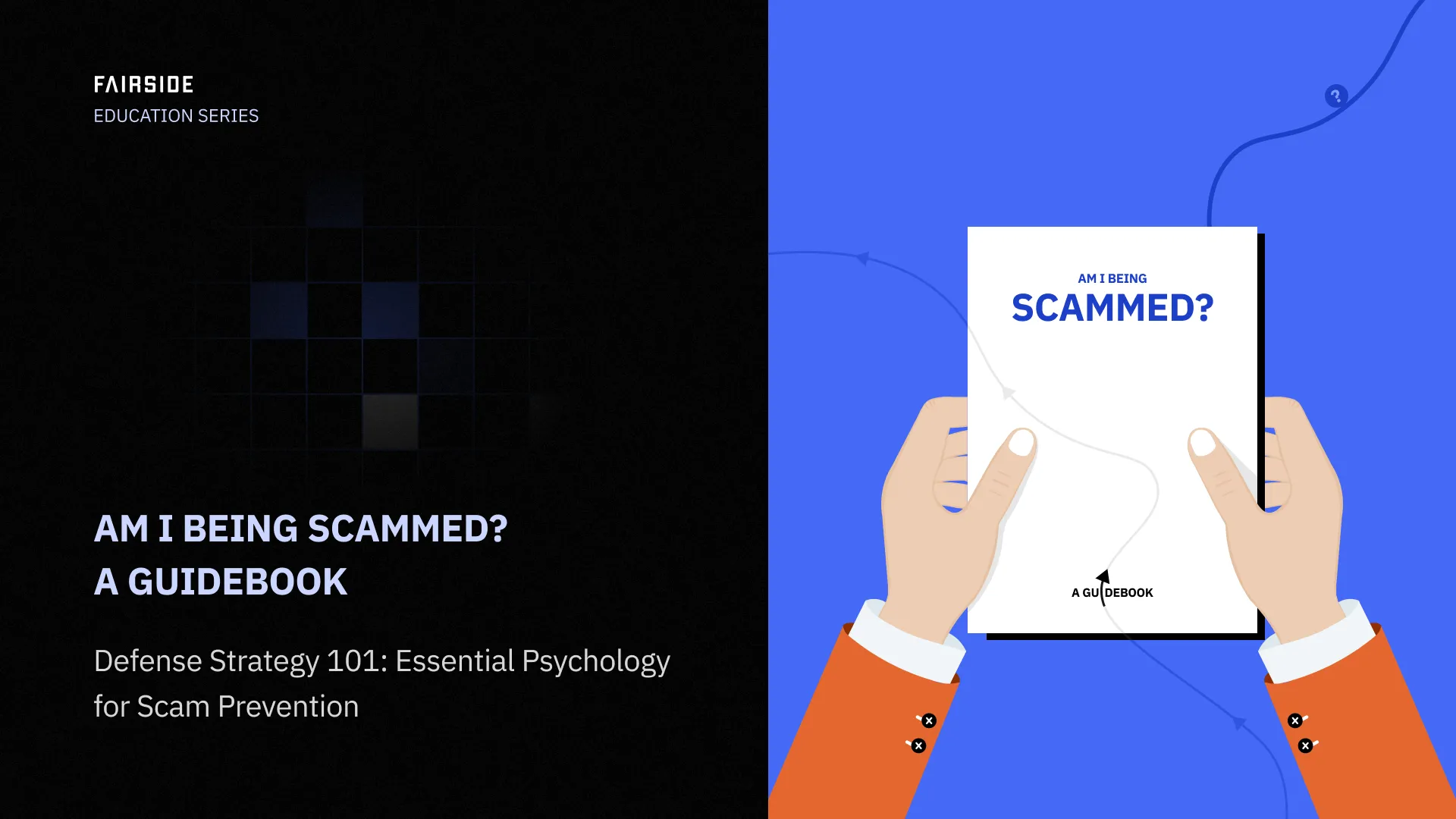


On this page

gm
i just almost got my wallet drained, but shout-out to the countless threads i’ve read about checking what you’re signing grateful for education in web3 🫡
-@kmoney
Surprisingly, the majority of personal wallet thefts are not the result of intricate hacks. Instead, they are successful exploitations of human emotions and behavior, where users unwittingly grant scammers full permission to access their funds.
We’ve distilled the psychological elements down to the essentials, crafting a straightforward toolkit to equip you with the mindset necessary to dramatically reduce the likelihood of falling prey to a scam.
Five quick questions
The first thing you should do before connecting your wallet to any new site, ask yourself if you spot any of the following:
- Am I feeling FOMO?
- Am I feeling urgency and/or pressure?
- Are my emotions at play?
- Is something about this abnormal?
- Am I feeling exclusivity?
If you spot any of these red flags, proceed with caution. These common triggers will likely cloud judgement and are often exploited by scammers. Now, let’s dive into the ‘Anti-Scam Checklist’ for a more comprehensive guide to safe interactions.
The ten step anti-scam checklist
We recommended that you consider this list when interacting with a contract or another person for a trade:
1. Triple check every link
When we say “Don’t trust. Verify,” we mean it!
This includes triple checking every wallet and contract address.
2. Move slow. Think things through
Am I being pressured to move quickly? Am I moving quickly because I “don’t want to miss out”? Slowing down here is a necessity.
3. Resist exclusivity
An all too common tactic of scammers is to make their mark feel special, or to attempt to establish authority by using the names of others.
4. Disregard “Too good to be true”
Scammers often entice victims with offers that are ‘too good to be true’. These outlandish propositions are usually paired with compelling justifications, luring unsuspecting individuals into the trap.
It’s crucial to maintain deep skepticism towards these justifications, as bad actors in the cryptocurrency space frequently exploit consumer optimism.
5. Ignore abnormal
When something is abnormal, it should inherently perk your ears, and it is essential to do due diligence before interacting. Has Azuki ever done a “surprise exclusive mint” before? Is it a bit odd that this notable figure would suddenly DM you asking for money?
6. Ignore emotional manipulation
When Bernie Madoff’s clients asked ‘too many questions’, he’d retaliate by berating them and threatening to return their investments. Ironically, this led many clients to plead for Madoff to keep their money, choosing to abandon their inquiries and place blind trust in him instead.
Beware of such tactics in the crypto world. Scammers can switch from being charming to hostile in an instant, pressuring you to act swiftly. This is a clear red flag: their goal is to stop you from probing further and get you to surrender what they want
7. Trust less
Is this method requiring you to “trust” a stranger (or product) more than you need to be? Is there a way to accomplish whatever you are seeking in a fully trustless manner?
8. Be vigilant
Every single transaction you sign, even gasless ones, should be signed with 100% certainty that they will not be malicious. At times, we may feel like it’s harmless to connect to an unknown website if the design is sleek, there are familiar brands/names listed, and overall, “seems legit”.
As soon as you connect to a site, you are now two clicks away from a potential wallet drain.
9. Says who?
Who is the source of this information?
Did the cryptofluencer promising you generational wealth also ‘call’ numerous rugpulls? Is the celebrity, who never before tweeted about an NFT project, suddenly claiming that this one will be ‘life changing’? Is there an established reputation for the anonymous user assuring you that this new NFT trading website is safe?”
10. Question everything
A scammer’s request will almost always come with what seems to be a reasonable justification, designed to exploit the innate trust humans tend to have in one another. While their reasoning may seem sound on the surface, abnormal requests should always raise alarm bells. In this space, critical thinking and an inquisitive approach are your best defenses — question every claim, every action, and every request.
In addition to understanding the psychological tactics used by scammers, it’s equally crucial to adhere to fundamental security practices. Avoid sharing your screen at all costs, as it opens you up to a multitude of vulnerabilities. Also, you may be more susceptible to emotional manipulation in such circumstances. Whenever you’re downloading software, always verify the source — a scammer might be baiting you to download a malicious .exe file by appealing to your emotions. Stay vigilant about keeping your software updated too, ensuring you have the latest security patches in place. When you couple these precautions with an acute understanding of scam psychology, you can dramatically bolster your defenses against potential scams.
If you found this article helpful, please share it. We are all in this together, and every shared piece of knowledge makes us collectively stronger against scammers.
If you think we missed anything, tweet at us and add to the conversation.
Until next time. Stay safe!



